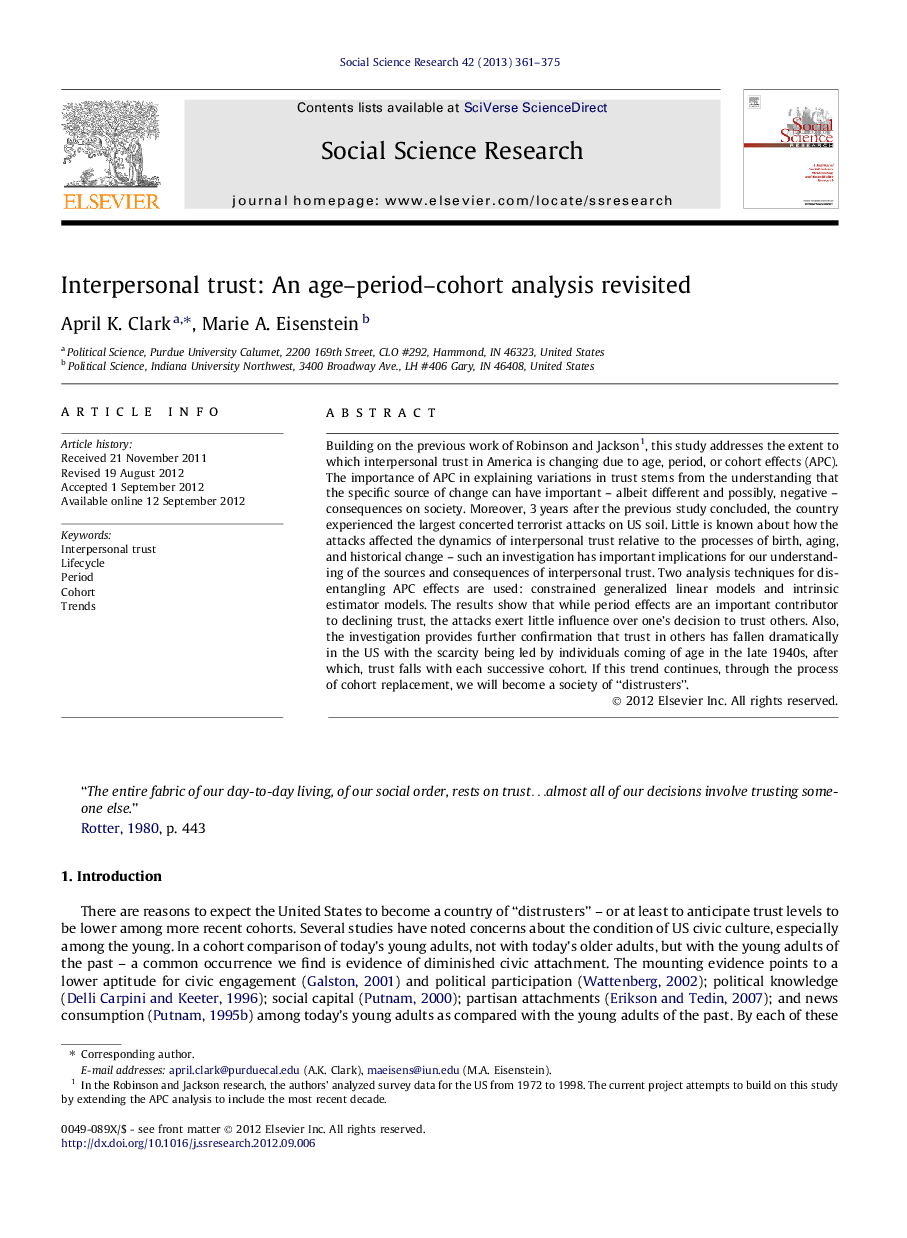| Article ID | Journal | Published Year | Pages | File Type |
|---|---|---|---|---|
| 955900 | Social Science Research | 2013 | 15 Pages |
Building on the previous work of Robinson and Jackson1, this study addresses the extent to which interpersonal trust in America is changing due to age, period, or cohort effects (APC). The importance of APC in explaining variations in trust stems from the understanding that the specific source of change can have important – albeit different and possibly, negative – consequences on society. Moreover, 3 years after the previous study concluded, the country experienced the largest concerted terrorist attacks on US soil. Little is known about how the attacks affected the dynamics of interpersonal trust relative to the processes of birth, aging, and historical change – such an investigation has important implications for our understanding of the sources and consequences of interpersonal trust. Two analysis techniques for disentangling APC effects are used: constrained generalized linear models and intrinsic estimator models. The results show that while period effects are an important contributor to declining trust, the attacks exert little influence over one’s decision to trust others. Also, the investigation provides further confirmation that trust in others has fallen dramatically in the US with the scarcity being led by individuals coming of age in the late 1940s, after which, trust falls with each successive cohort. If this trend continues, through the process of cohort replacement, we will become a society of “distrusters”.
► Americans are significantly less trusting today than was true a generation ago. ► The findings corroborate a net increase in trust with age (up to middle age). ► A negative nonlinear cohort effect among individuals born post-1948. ► While period effects contribute to declining trust, the 9/11 attacks are relatively unimportant. ► If these trends continue we will become a society of ‘‘distrusters”.
